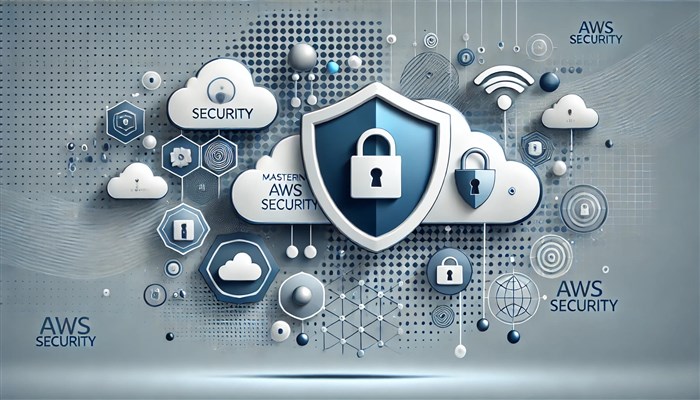
AWS Cloud Security Certification is becoming an increasingly important credential for IT professionals. As enterprises move more of their operations to the cloud, the need for skilled and certified cloud security experts is growing. This blog post will outline the key skills and knowledge areas you need to master to obtain your AWS Security certification.
In today’s digital age, securing cloud environments is critical for safeguarding sensitive data and maintaining operational integrity. Amazon Web Services (AWS), being a leading cloud provider, offers a variety of tools and services for robust cloud security. For professionals aiming to validate their expertise in AWS security, the AWS Certified Security – Specialty certification is a prestigious credential. This blog explores the core skills and knowledge areas essential for AWS security certifications, focusing on identity and access management, data protection, incident response, and compliance. Mastering these areas is crucial for successfully passing the AWS Certified Security – Specialty exam and excelling in a security-focused role.
Core Skills and Knowledge Areas for AWS Security Certification
1. Identity and Access Management (IAM)
Identity and Access Management is a cornerstone of AWS security. It involves controlling access to AWS resources and managing user permissions. Here are key aspects to focus on:
- IAM Policies and Roles: Understand how to create and manage IAM policies, roles, and permissions. Learn about policy types (managed, inline) and how to apply the principle of least privilege.
- Multi-Factor Authentication (MFA): Implement MFA to add an additional layer of security to AWS accounts and services. Know how to configure MFA for IAM users and roles.
- Federated Access: Explore how to enable federated access using AWS IAM roles, AWS Single Sign-On (SSO), and external identity providers (e.g., Active Directory, SAML).
- Resource Access Management: Learn to manage access to AWS resources such as S3 buckets, EC2 instances, and RDS databases. Understand resource-based policies and access control lists (ACLs).
Mastering IAM ensures that you can securely manage user identities, control access to resources, and enforce security policies across your AWS environment.
2. Data Protection
Data Protection is crucial for securing sensitive information and ensuring data integrity. Key areas include:
- Encryption: Familiarize yourself with AWS encryption services like AWS Key Management Service (KMS), AWS CloudHSM, and encryption options for data at rest and in transit. Understand encryption key management, lifecycle policies, and compliance requirements.
- Data Masking and Tokenization: Learn about techniques for data masking and tokenization to protect sensitive data, particularly in non-production environments or during data processing.
- Backup and Recovery: Explore AWS backup solutions such as AWS Backup, Amazon RDS automated backups, and Amazon S3 versioning. Understand best practices for data backup, recovery strategies, and disaster recovery planning.
- Data Classification and Protection: Implement data classification policies to identify and secure sensitive data. Use AWS services like AWS Macie for data discovery and classification.
Proficiency in data protection ensures that you can secure and manage sensitive information effectively, meet regulatory requirements, and protect against data breaches.
3. Incident Response
Incident Response involves preparing for, detecting, and responding to security incidents. Key areas to cover include:
- Incident Detection: Understand how to use AWS services for monitoring and detecting security threats. Explore AWS CloudTrail, AWS Config, Amazon GuardDuty, and AWS Security Hub for security monitoring and alerts.
- Incident Management: Learn how to develop and implement incident response plans and procedures. Familiarize yourself with AWS services that support incident management and response, such as AWS Systems Manager Incident Manager.
- Forensics and Analysis: Explore techniques for conducting forensic analysis of security incidents. Use AWS tools for log analysis, such as Amazon CloudWatch Logs, to investigate and understand security events.
- Automated Response: Implement automated response mechanisms using AWS Lambda and AWS Step Functions to streamline incident response and remediation processes.
Mastering incident response helps ensure that you can quickly detect, manage, and recover from security incidents, minimizing potential damage and maintaining operational continuity.
4. Compliance and Governance
Compliance and Governance involve ensuring that your AWS environment meets regulatory and organizational requirements. Focus on:
- Compliance Frameworks: Understand AWS compliance programs and frameworks, such as GDPR, HIPAA, PCI-DSS, and SOC 2. Learn how to align AWS services with these frameworks to ensure compliance.
- AWS Security Services: Familiarize yourself with AWS services that assist with compliance and governance, such as AWS Config for configuration compliance, AWS CloudTrail for auditing, and AWS Artifact for accessing compliance reports.
- Governance Policies: Implement governance policies using AWS Organizations, AWS Control Tower, and Service Control Policies (SCPs) to manage and enforce security and compliance standards across multiple accounts.
- Auditing and Reporting: Develop skills in auditing and reporting using AWS services and tools. Learn how to generate compliance reports, conduct security assessments, and maintain audit trails.
Proficiency in compliance and governance ensures that you can manage and enforce security policies, meet regulatory requirements, and maintain a compliant AWS environment.
Preparing for the AWS Certified Security – Specialty Exam
Mastering the core skills and knowledge areas outlined above is essential for passing the AWS Certified Security – Specialty exam. Here’s how to prepare effectively:
1. Review the Exam Guide
Start by reviewing the AWS Certified Security – Specialty exam guide provided by AWS. The guide outlines the exam objectives, domain weightings, and recommended study resources.
2. Utilize AWS Training Resources
AWS offers various training resources to help you prepare for the certification:
- AWS Training and Certification: Explore AWS’s official training courses and learning paths, such as the AWS Security Fundamentals and the AWS Certified Security – Specialty Exam Readiness course.
- AWS Whitepapers: Read AWS whitepapers on security best practices, data protection, and compliance. These documents provide valuable insights into AWS security concepts and practices.
3. Take Practice Exams
Practice exams are a valuable tool for assessing your readiness. Use practice exams and sample questions to familiarize yourself with the exam format and identify areas where you need further study.
4. Engage in Hands-On Labs
Gain practical experience by working with AWS security services and tools in hands-on labs. Use the AWS Free Tier and sandbox environments to experiment with IAM policies, encryption, incident response workflows, and compliance configurations.
5. Join Study Groups and Forums
Participate in study groups and online forums to connect with other candidates and industry professionals. Engage in discussions, share resources, and seek advice to enhance your preparation.
Why Choose Koenig Solutions for AWS Cloud Security Training?
Koenig Solutions is a leading IT training company that provides high-quality AWS Security training. Their AWS Cloud Security Course is designed to equip you with the skills and knowledge you need to successfully complete the AWS Security Certification exam. The course is delivered by experienced instructors and includes hands-on labs to help you gain practical experience.
In conclusion, the demand for AWS security skills is increasing as more organizations move to the cloud. Getting your AWS Cloud Security Certification can give you a competitive edge and open up new career opportunities. Start your journey to becoming a certified AWS Security expert today with Koenig Solutions.
Conclusion
Mastering AWS security requires a deep understanding of key skills and knowledge areas, including identity and access management, data protection, incident response, and compliance. By focusing on these core areas and utilizing effective study resources, you can prepare for the AWS Certified Security – Specialty exam and excel in securing AWS environments.
Achieving this certification not only validates your expertise but also positions you as a skilled security professional capable of managing and protecting cloud assets in an increasingly complex threat landscape. Embrace the journey of mastering AWS security, and take the next step in advancing your career with confidence.







COMMENT